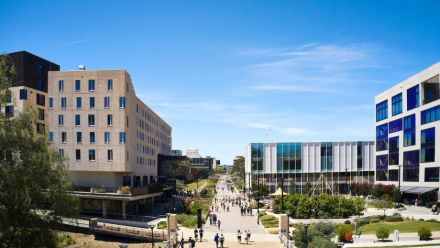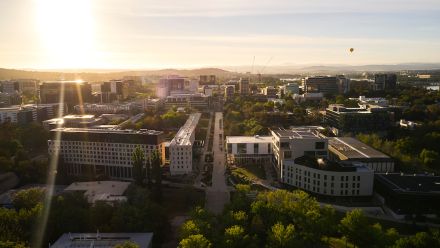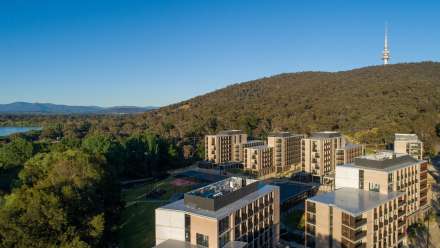MRFF supports ANU trial that may help people age better
From work which has been lab-based, we can now intervene and attempt to prevent some of the clinical conditions that come with age
Scientists at The Australian National University (ANU) have embarked on a five-year trial that may help prevent age-related diseases, including blood cancers and heart disease.
Professor Mark Polizzotto, who leads the Clinical Hub for Interventional Research (CHOIR) at the ANU College of Health and Medicine (CHM), has secured funding of $2,971,763 from Medical Research Future Fund (MRFF) to carry out the MOSAIC trial (Modulation of stem cell differentiation in individuals with high-risk clonal haematopoiesis).
The MOSAIC trial aims to address and reverse the genetic mutations that accumulate in blood stem cells over time, with the ultimate goal of helping people age better.
Professor Polizzotto says the focus of the trial lies in trying to reverse the development of clonal haematopoiesis (CH), a condition where mutated stem cells become dominant in blood cell production. This phenomenon has been linked to various complications associated with ageing.
The CHOIR team has developed a targeted medication designed to restore normal stem cell production, with the goal of reducing the burden of clinical conditions associated with CH and ageing.
This five-year trial is led by the ANU in collaboration with UNSW, Cambridge University, University of Auckland and the Cleveland Clinic.
"This trial will attempt to reverse the effects of these mutations using a new treatment developed to restore normal stem cell production," says Professor Polizzotto.
"It uses a sophisticated targeted medication, just one tablet a week over a six-month period, which we hope will reverse the changes happening in the aging bone marrow."
Professor Polizzotto's team at CHM has been at the forefront of researching this process and understanding its clinical implications.
He explains that the low-dose oral epigenetic therapy developed by his team will be tested in a multi-centre, double-blind, placebo-controlled, randomised phase 2 trial in individuals with high-risk CH.
"The goal is to identify a safe and effective therapy that can prevent the adverse clinical outcomes of CH by restoring normal stem cell function," he says.
"For us the MRFF funding for the MOSAIC trial brings together more than 10 years of work, allowing us for the first time to try to modify the mutation process and hopefully help people age better," he says.
"It's a huge step for us - from work which has been lab-based or descriptive, we can now intervene and attempt to prevent some of the clinical conditions that come with age.
"I am thrilled that this trial will bring ANU into this preventative space, which is a major strategic focus for CHM, and that it brings together a strong network of collaborators from around the world."


